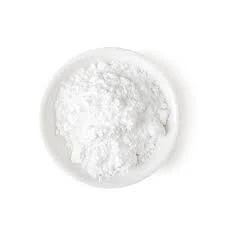Amines for Boiler Water Treatment An Overview
Boiler water treatment is a critical aspect of industrial operations, especially in facilities relying on steam generation. The efficiency, longevity, and safety of boilers depend significantly on the quality of the water used. One of the essential components in boiler water treatment is the use of amines. This article explores the role of amines, their benefits, and considerations in boiler water treatment processes.
What Are Amines?
Amines are organic compounds derived from ammonia by replacing one or more hydrogen atoms with organic groups. They can be classified into three categories based on their structure primary, secondary, and tertiary amines. In the context of boiler water treatment, amines are primarily used as pH control agents and corrosion inhibitors.
Role of Amines in Boiler Water Treatment
1. pH Adjustment Amines help to maintain optimal pH levels in boiler water. A neutral to alkaline pH range (typically 8 to 10) is essential for preventing corrosion. By controlling pH, amines can mitigate the risk of acidic corrosion, which can damage boiler components and reduce efficiency.
2. Corrosion Inhibition Corrosion is a significant concern in boiler systems. The presence of dissolved gases, such as oxygen and carbon dioxide, can lead to corrosion in boiler feedwater systems. Amines, particularly those like morpholine and cyclohexylamine, form protective films on metal surfaces. These films inhibit the contact between water and metal, significantly reducing the rate of corrosion.
3. Steam Quality Improvement For steam used in industrial processes, purity and quality are paramount. Amines contribute to steam cleanliness by preventing the formation of amine carryover in the steam phase. This minimizes the risk of contamination in the end-use applications, ensuring that steam can be utilized effectively without affecting product quality.
4. Thermal Stability Amines have good thermal stability, which ensures that they remain effective under high-temperature conditions typically found in boiler systems. This property makes them suitable for long-term use without frequent reapplication.
Benefits of Using Amines
The integration of amines into boiler water treatment programs offers several key benefits
amine for boiler water treatment

- Cost-Effectiveness By reducing maintenance costs associated with corrosion damage and equipment downtime, amines can lead to substantial savings over time
.- Environmental Safety Amines typically have lower toxicity compared to alternative boiler treatment chemicals, making them a safer choice for operators and less harmful to the environment.
- Operational Efficiency Using amines helps improve overall boiler efficiency by minimizing scaling and biodeterioration, which can impede heat transfer and increase fuel consumption.
Considerations When Using Amines
While amines present numerous advantages, there are considerations to keep in mind
1. Concentration Control The effectiveness of amines as corrosion inhibitors is greatly influenced by their concentration in the boiler water. Excessive use can lead to unwanted side effects, such as foaming or increased levels of carryover in steam.
2. Compatibility with Other Chemicals It is crucial to assess the compatibility of amines with other chemicals used in the water treatment process. Some combinations may result in adverse reactions or reduced efficacy of treatment protocols.
3. Monitoring and Maintenance Continuous monitoring of boiler water chemistry is essential to ensure that amine levels remain within optimal ranges. Regular testing and adjustments may be necessary to accommodate changes in operational conditions.
4. Regulatory Compliance Operators must remain aware of local regulations regarding chemical use in industrial processes, including amines. Ensuring compliance protects both the facility and the environment.
Conclusion
Amines play a vital role in the effective treatment of boiler water, contributing to corrosion inhibition, pH balance, and enhanced steam quality. Their benefits, including cost-effectiveness, environmental safety, and operational efficiency, make them a preferred choice in many industrial settings. However, careful monitoring and adherence to best practices are essential to maximize their effectiveness and maintain the integrity of boiler systems. As industries continue to seek improvements in efficiency and sustainability, the use of amines in boiler water treatment is likely to remain an integral part of the conversation.

